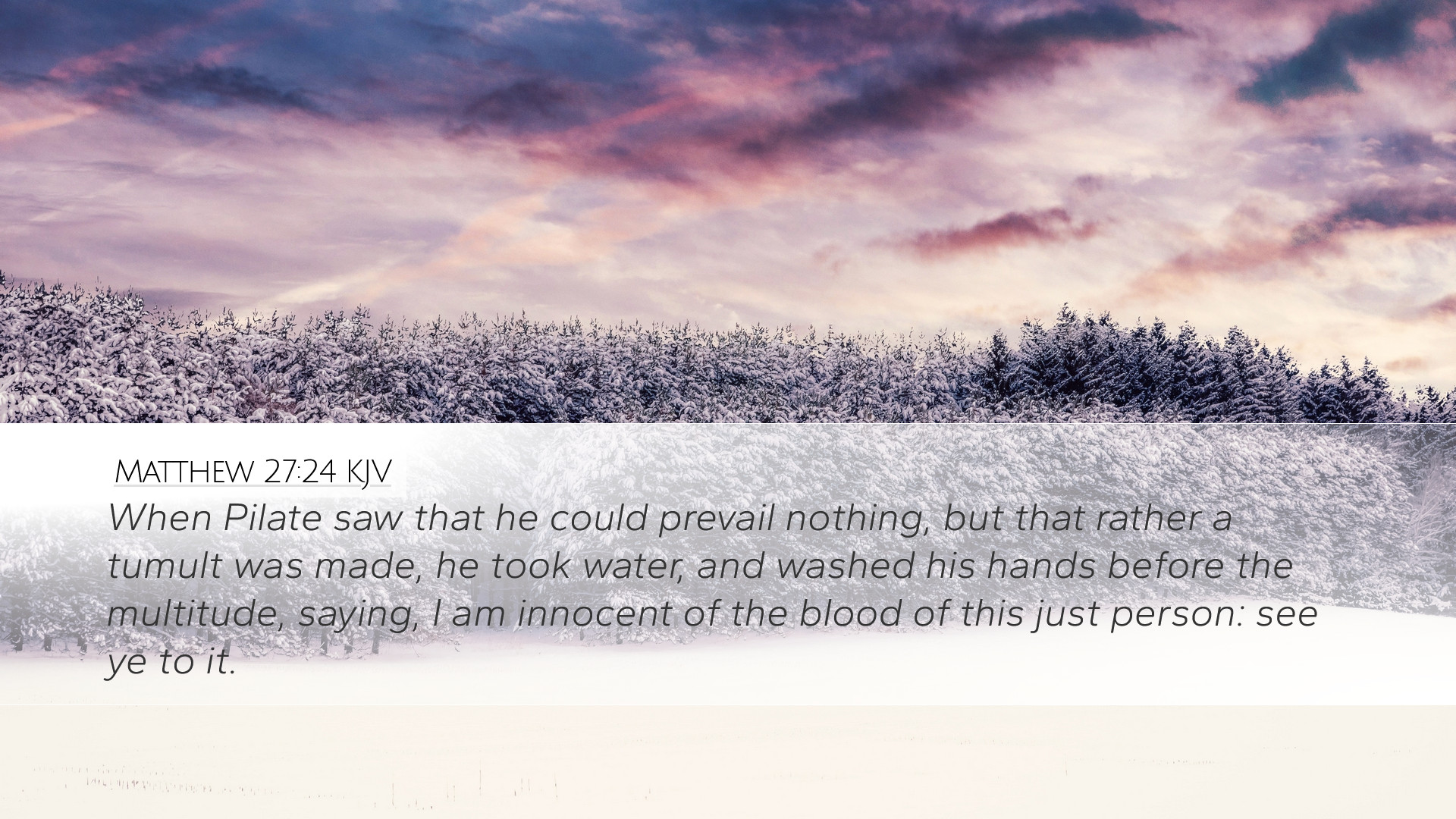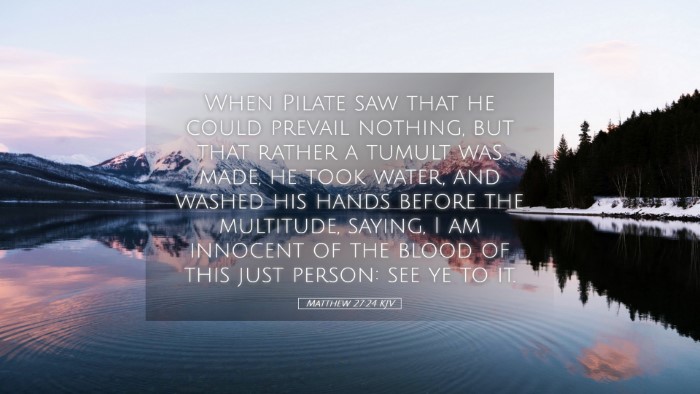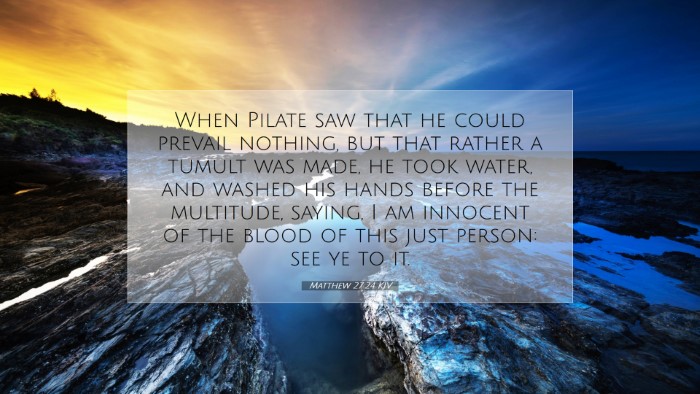Commentary on Matthew 27:24
Verse: "When Pilate saw that he could prevail nothing, but that rather a tumult was made, he took water, and washed his hands before the multitude, saying, 'I am innocent of the blood of this just person: see ye to it.'
Introduction
This pivotal verse encapsulates the intricate dynamics of the trial of Jesus, presenting a vivid picture of moral dilemma, political maneuvering, and the consequences of collective guilt. It highlights the actions of Pontius Pilate, the Roman governor, who attempts to distance himself from the responsibility of condemning an innocent man amidst the chaos of the mob.
Analysis and Insights
Historical Context
Matthew Henry emphasizes the political backdrop against which Pilate's actions unfolded. The Jewish leaders sought to incite the crowd to demand Jesus' crucifixion. In this tumultuous environment, Pilate faced the pressure of maintaining his authority while being caught between the desires of the Jewish authorities and the innocence of Jesus.
Pilate's Dilemma
Albert Barnes posits that Pilate, aware of Jesus' innocence, feels a sense of conflict. He grapples with his duty as a governor against his moral conscience. Pilate's desire to avoid the political fallout leads him to take the symbolic action of washing his hands, an act that reflects both an acknowledgment of guilt and an attempt to evade responsibility.
The Symbolism of Hand Washing
The act of washing hands carries significant symbolism. Adam Clarke points out that in ancient Jewish tradition, this ritual could signify the disavowal of responsibility. Pilate's washing of his hands demonstrates an external act intended to convey his internal feeling of guilt, making a clear statement to the crowd about his unwillingness to participate in their demands.
Collective Guilt and Accountability
Matthew 27:24 invites reflection on the theme of collective guilt. Matthew Henry notes that while Pilate serves as a representative figure, the crowd bears responsibility for their choice to persist in their demands for crucifixion. This verse serves as a cautionary tale about the dangers of Mass Delusion and the contributions of individuals to collective decisions, prompting readers to consider their own actions in similar circumstances.
Theological Implications
Innocence of Christ
Albert Barnes underscores the declaration of Jesus' innocence in this verse, which is not merely a political statement but also a theological one. The recognition of Jesus as “this just person” implies recognition of His divine mission and nature, as well as the tragic irony of His unjust condemnation.
The Nature of Authority
The actions of Pilate reveal profound insights into the nature of authority. Adam Clarke asserts that Pilate's failure to act justly despite his awareness of truth serves as a warning about the peril of compromising moral integrity in the face of societal pressure. The implications extend beyond Pilate’s time, urging modern leaders to reflect on the ethical responsibilities inherent in positions of power.
Preparation for Redemption
This moment in Matthew’s narrative highlights God’s sovereign plan for redemption. Matthew Henry reflects that even in this darkest hour, God was working through human actions to fulfill the prophecies concerning the Messiah's passion.
Conclusion
Matthew 27:24 is laden with meaning, resonating deeply with contemporary themes of justice, authority, individual and collective responsibility, and the nature of truth. For pastors, students, theologians, and Bible scholars, this verse provides a profound basis for discussion on the ethical implications of leadership, the cost of silence in the face of injustice, and the rich tapestry of the gospel narrative that finds its fulfillment in Christ’s passion.
Reflection Questions
- In what ways do we see Pilate's dilemma mirrored in today's leaders?
- How can the act of washing hands be a metaphor for our engagement with societal injustices?
- What lessons can be drawn from the crowd's participation in the condemnation of Jesus?
- How does this passage impact our understanding of collective guilt in our communities?


